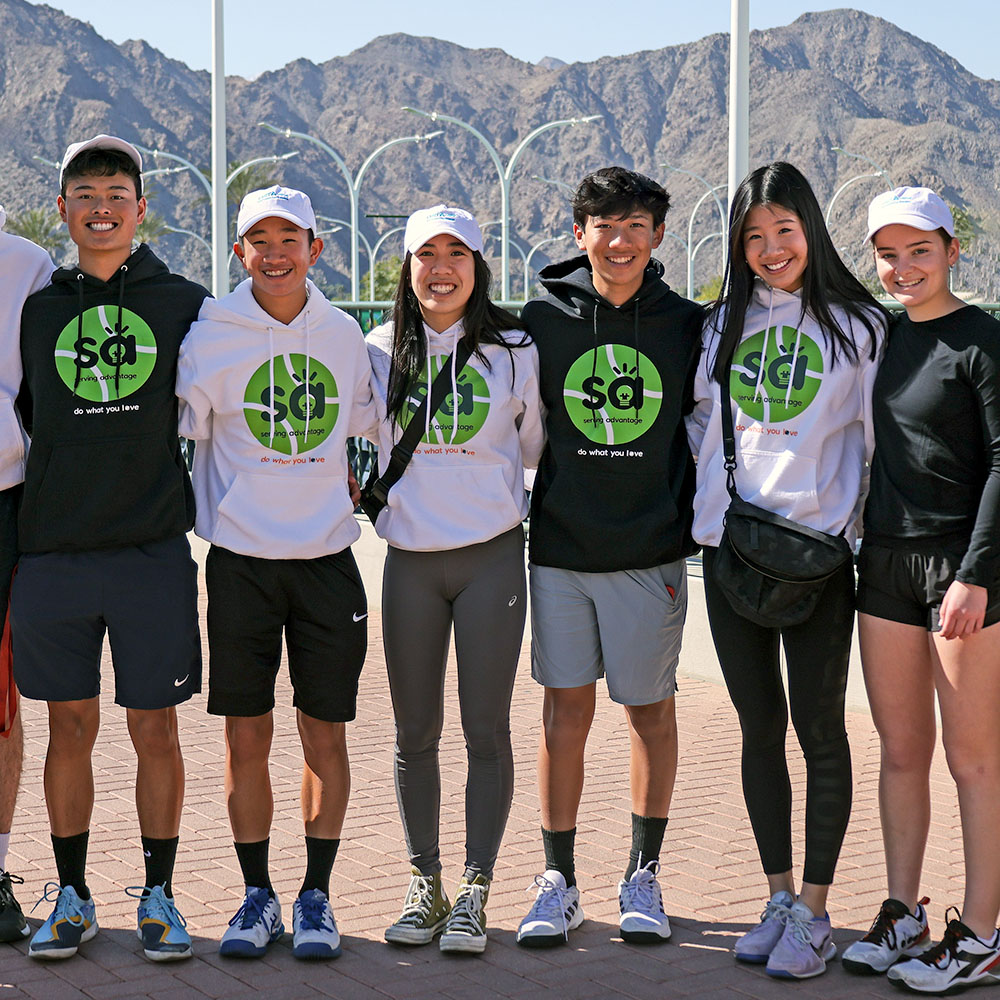YLC BLOG: SERVING ADVANTAGE MAKING A DIFFERENCE IN SOCAL
YOUTH LEADERSHIP COUNCIL | USTA SOUTHERN CALIFORNIA
FEBRUARY 12, 2024 | SHIVI GOYAL

YLC BLOG: SERVING ADVANTAGE MAKING A DIFFERENCE IN SOCAL
USTA SOUTHERN CALIFORNIA
FEBRUARY 12, 2024
SHIVI GOYAL

SHARE THIS STORY
Share on facebook
Share on twitter
Share on linkedin
Share on reddit
Share on email
Most of us in the USTA have accumulated much tennis experience over the years. But even so, there is one side to tennis with which many people are unfamiliar: adaptive tennis. Many people in the US are diagnosed with intellectual or developmental disabilities (IDDs) such as attention deficit hyperactivity disorder (ADHD) or similar conditions on the autism spectrum. These learning differences can lead to a difficult life, making playing sports such as tennis virtually impossible.
However, with the right help, those with IDDs can have the same opportunities as anyone else. Organizations such as Serving Advantage and SoCal Adaptive Sports have been established to expand the tennis community to people with disabilities.
Serving Advantage is an organization that strives to provide students with IDDs with a fun experience in the field of tennis. Wendi Eusebio, co-founder, defines adaptive tennis as “making sure that tennis is accessible to everybody, no matter what the challenges are.”
Exercise is vital in leading a healthy lifestyle, and that is no exception for people with IDDs. Serving Advantage recognized this necessity and built a course of action specifically catered to these individuals. “Usually, they’ll need to have visual aids, which aren’t normal in a sports lesson; it’s important for them to have the support that they need so they can be set up for success,” Eusebio explained.
That being said, Serving Advantage has created an effective routine to give its students the best chance to succeed in tennis. The lessons usually consist of a warmup, including stretching, gross motor, and hand-eye coordination skills. Co-founder Jacob Eusebio also emphasizes the importance of communication by initiating a question of the day to get the ball rolling. The group will then work on basic tennis skills. Eusebio said, “We’ll work on skills like feeding them forehands and backhands, then hitting volleys and serves.” Eusebio noted the importance of keeping these clinics fun for the kids.
“We’ll always end the day with a game and a group cheer to leave it on a good note.”
Tennis organizations for people with IDDs depend on the public. Serving Advantage has created a “doubles-partner” system in which volunteers are paired up with a student for the building of a one-on-one connection. “We hold doubles trainings every quarter for people to prepare before coming to clinics to volunteer,” said Eusebio. As of 2024, Serving Advantage has around 150 active doubles-partner volunteers dispersed around Southern California.
Eusebio also noted that people without tennis experience can volunteer as part of a setup or cleanup crew, or as a front desk helper. As she said, “There’s plenty of ways to get involved in Serving Advantage whether you’re a tennis player or not.”
Serving Advantage holds clinics every month in Tustin and, this year, in Irvine. The organization is also known for its week-long summer and winter camps that are open for people to volunteer.
Since it first began in 2020, Serving Advantage has helped to profoundly expand the tennis community to those with IDDs. Their community-based achievements have earned them national recognition, including an article from ESPN. These adaptive tennis programs are part of what sets Southern California apart from other regions, and Serving Advantage is at the forefront of this impressive distinction.
SHARE THIS STORY
Share on facebook
Share on twitter
Share on linkedin
Share on reddit
Share on email

